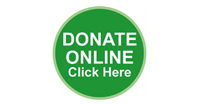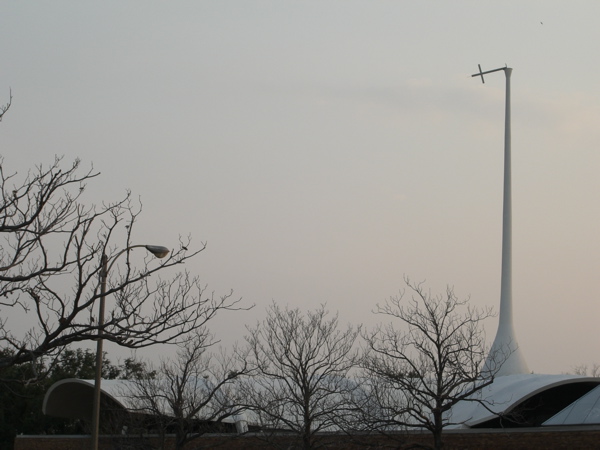

FC Organizers Join Katrina ReliefSubmitted by admin on Thu, 06/22/2006 - 23:37
 Aby Adams and Will Hall of the Freedom Center recently returned from a three week trip in New Orleans, Louisiana, where we volunteered skills doing relief work with survivors of Hurricane Katrina and Rita. It was just a tiny contribution during a very brief visit -- a mental health skill share, advocacy work, some research, a little spanish translation, clinic educational materials development -- a small offering of what we had to share (we also met up with Carey Lamprecht of the Icarus Project while there). The situation is overwhelming, [url=http://www.freedom-center.org/pdf/and there's not much to be optimistic about politically and economically. Still, we came back tremendously enriched by the people we met, their hospitality and warmth. There is so much to tell, but here are some of the highlights: We brought some medical and acupuncture supplies to the Aligiers free health clinic, operated by Common Ground under the motto "solidarity, not charity." We also provided three patient education sheets, on trauma, sleep, and suicide prevention, after discussing these needs with many people. When we learned that federally-funded social workers from a SAMHSA grant were going to be working at the clinic, we were invited to present our concerns to clinic staff about the stigma and treatment risks associated with mainstream approaches to mental health. We also did a mental health skill share that brought together Algiers residents with clinic staff for an insightful discussion that one resident described as "the best thing I have done since coming back." Common Ground is filled with inspired out-of-towners working on health care, house toxin cleanup, and relief supplies, and has helped thousands of residents with immediate needs. Despite appreciation for their efforts by the residents we met, Common Ground still faces difficulties making 'solidarity not charity' a reality and overcoming the ruptures of race and money inequality that scar New Orleans and the rest of the US. We also promoted acupuncture as a trauma treatment, meeting with many interested residents for demonstrations and initiating discussions with Acupuncturists Without Borders about the NADA protocol and training local residents. Aby led the way collaborating with the Lower 9th Ward Homeowner's Association, researching city politics around the Bring New Orleans Back coalition for use by community activists, and responding to numerous requests for further investigation once we returned home. Aby's organization, Information Collective, is continuing to work with Lower 9th Ward residents, and on their request completed a brochure about demographics of New Orleans before and after Katrina. One example of the health issues that face the city: Will was getting on his bike wearing sandals and scraped his ankle. Not a problem, a tiny spot of blood and he put topical antibiotic on it, kept it very clean, and covered it. Within 12 hours Will had a potentially life-threatening staph infection with an anti-biotic resistant strain of the virus. Was it the water supply? The air? Another problem is widespread toxic mold that causes respiratory problems, with some people exposed coughing up blood. Conditions were of course better at the FEMA camp set up for volunteers, managed by the same private company that handles Phish concerts. As one African American resident told us, "We're here, but we're displaced." New Orleans is a traumatized city -- and an oppressed city. For years it has suffered acutely the class inequality and racism that poison the US. Hurricanes come every summer to the Gulf Coast, and are getting worse with the greenhouse effect. Years of ecological destruction and corporate exploitation destroyed natural barriers and made the Coast area vulnerable to the storm surge of Katrina. The local, state, and federal governments have done very little to protect the city from further devastation, much less deal with the impact of Katrina. Many residents have not returned, basic services are still not restored in parts of the city, and bodies are still being found -- 8 months later, mummified bodies. As for the future, real estate developers have profits in mind, not the spirit of the city, in what one resident said was "not gentrification, this is Disneyfication." The neglect and indifference, and the crass commercial opportunism, send a clear message not only to Black America but to all the poor and vulnerable. Katrina, however, was a turning point. Bush's popularity has slid downward ever since. And history might be instructive: it was the 1927 Mississippi flood that catapulted Huey Long to national prominence, seizing oil fields, taxing corporations, and posing a populist threat to the rich and powerful until his assassination. FDR made it to the White House riding that wave of social unrest, cutting a lesser-of-evils deal with corporate capitalists worried about open revolt and revolutionary overthrow. That deal became the New Deal, and is responsible for virtually every social and economic protection for the poor and middle class that we enjoy today, however inadequate and deteriorating those protections might be. So as we struggle to make sense of this overwhelming castatrophe, to face the magnitude of the threat hurricane season poses, and to challenge ourselves to overcome the race and money divisions that get in the way of effective community organizing, let's remember this: while New Orleans may be at the symbolic heart of US oppression, it may be at the heart of renewal, as well. -- Aby Adams, Will Hall Read our letter to Algiers clinic about SAMHSA Download our Help Getting To Sleep factsheet distributed at the Algiers clinic. ( categories: )
|
|